Lancelot Andrewes Collection (7 vols.)
Digital Logos Edition
Overview
Known as the “star of preachers,” Lancelot Andrewes was one of the foremost scholars and theologians during the reigns of Elizabeth I and James I of England. So great was his command of language that he was appointed head of the committee that created the Authorized Version (or King James Version) of the Bible. After Andrewes’ death, King Charles I ordered that his sermons be collected and published. T. S. Eliot converted to Anglicanism (from Unitarianism) after reading these collected sermons. According to Eliot, “they rank with the finest English prose of their time, of any time.”
The Lancelot Andrewes Collection combines the 96 sermons collected by Charles I with two volumes of Andrewes’ private devotions. Sermons are grouped topically for easy access, and you can cross-reference other sermon collections with a click. Latin, Greek, and Hebrew words link to language resources in your library, and you can define difficult or out-of-date English words with the dictionary lookup function. Complete indexing allows you to access these historical texts with Logos’ state-of-the-art search functions.
This title is included in the following collections
You can save when you purchase this product as part of a collection.
Logos 5 Anglican Bronze Legacy...
$89.99$89.99Logos 6 Anglican Silver Legacy...
$349.99$349.99Logos 5 Anglican Silver Legacy...
$349.99$349.99Logos 7 Anglican Gold Legacy L...
$849.99$849.99
- $849.99
- $849.99
- $1,499.99
- $1,499.99
- $1,499.99
- $1,499.99
- $1,499.99
- $2,999.99
- $2,999.99
- $2,999.99
- $2,999.99
- $2,999.99
- $4,749.99
- $4,749.99
- $4,749.99
- $4,749.99
- $4,749.99
- $4,749.99
- $11,399.99
- $11,399.99
- $21,749.99
- $24,999.99

- All 96 sermons collected by Charles I
- Private devotions translated from Greek and Latin by John Henry Newman and John Mason Neale
- Topical arrangement of sermons
- Title: Lancelot Andrewes Collection
- Author: Lancelot Andrewes
- Volumes: 7
- Pages: 2,567
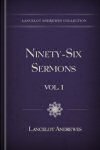
Volume one contains “Sermons of the Nativity: Preached on Christmas Day” and “Sermons of Repentance and Fasting: Preached on Ash Wednesday.”
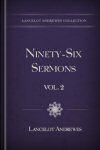
Volume two contains “Sermons Preached in Lent” and “Sermons of the Resurrection: Preached on Easter Day.”
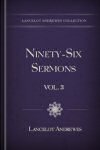
Volume three contains “Sermons of the Resurrection” and “Sermons of the Sending of the Holy Ghost: Preached on Whit Sunday.”
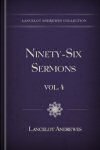
Volume four contains “Sermons of the Conspiracy of the Gowries: Preached upon the Fifth of August” and “Sermons of the Gunpowder Treason: Preached upon the Fifth of November”
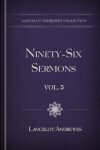
Volume five contains “Certain Sermons Preached at Sundry Times, upon Several Occasions,” “Nineteen Sermons upon Prayer in General and the Lord’s Prayer in Particular,” and “Seven Sermons upon the Temptation of Christ in the Wilderness.”
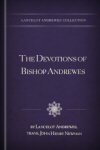
The Devotions of Bishop Andrewes contains John Henry Newman’s English translation of Lancelot Andrewes’ manual of devotions, originally written in Greek.
John Henry Newman (1801–1890) was born in London. Though he grew up in an Evangelical Anglican home, Newman became the de facto leader of the Oxford Movement, a revival associated with the high-church Anglican party. In 1845, Newman was received into the Roman Catholic Church, where he was made a cardinal in 1879. Newman is known as one of the brightest intellectual lights of the Victorian period. His writings have had a broad influence, most notably in theology and philosophy.
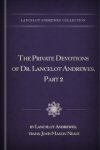
The Private Devotions of Dr. Lancelot Andrewes, Part 2 contains John Mason Neale’s English translation and arrangement of the private Latin devotions of Lancelot Andrewes.
John Mason Neale (1818–1866) was born in London. He attended the University of Cambridge where he studied classics. Ordained in the Church of England, he—motivated by the Oxford Movement—started the Cambridge Camden Society, which advocated for a return to medieval architecture in church buildings. Neale founded the first women’s order in the Church of England, the Society of St. Margaret. One of the most prolific hymn writers and translators of the nineteenth century, Neale is responsible for the translation of more than 60 hymns, including “O Come, O Come, Emmanuel,” “Good King Wenceslas,” and “All Glory, Laud, and Honor.”
Lancelot Andrewes (1555–1626) was born in All Hallows, Barking, in London. He graduated from Cambridge University with a BA and an MA. He became a fellow of Pembroke Hall, Cambridge, in 1576. He was ordained in 1580 and made master of Pembroke Hall and chaplain to the Archbishop of Canterbury in 1589. The following year he became chaplain to Queen Elizabeth I. Andrewes’ sermons recommended him to James I, who made him general editor of the Authorized Version (King James Version) of the Bible. In 1605, Andrewes became bishop of Chichester. His sermon following the foiled Gunpowder Plot in 1606 became the foundation for celebrations that continue today. He eventually became Bishop of Winchester, a position he held until his death in 1626.
Reviews
9 ratings
David
11/16/2018
Is it just me or do the Ninety-Six sermons of Lancelot Andrewes actually contain 99 sermons? Sermons 9 in volume 5 has a footnote as follows: "This Sermon is not one of the Ninety-six, nor does it occur in some of the earlier editions. It is given in that of 1661 between the last on the Gunpowder Treason and the Occasional Sermons." So i'll assume there are another two similarly placed that are not part of the original 96.John Turner
5/24/2017
Very rare and truly wonderful! Andrewes a translator of the original King James Old Testament is a joy to read. He has a profound understanding of the incarnation and and man's relationship to God.
David A. deSilva
2/11/2016
It's exciting to see this available for Logos. I haven't myself purchased it, so my rating is based simply on my joy to see Faithlife expending the resources to make these classic texts more accessible. If you're reading this, you're probably enough of an Andrewes aficionado to enjoy an article I wrote ages ago, “The Feast in the Text: The Sermons of Lancelot Andrewes,” Anglican Theological Review 76 (1994) 9-26. I think a .pdf may be floating around online somewhere. I hope we may yet see the sermons of John Donne and perhaps even those of Jeremy Taylor appear in the Logos library!AeliusCicero
6/19/2014
Michael Maria Waldstein
12/7/2013

Larry Proffitt (I
11/4/2013

Faithlife User
10/21/2013
Nathan Long
10/15/2013
Curtis Dubreuil
10/15/2013

David Roberts
5/25/2013
I'm curious if the Exeter Manuscript will be included or not - the 'Orphan Lectures'.